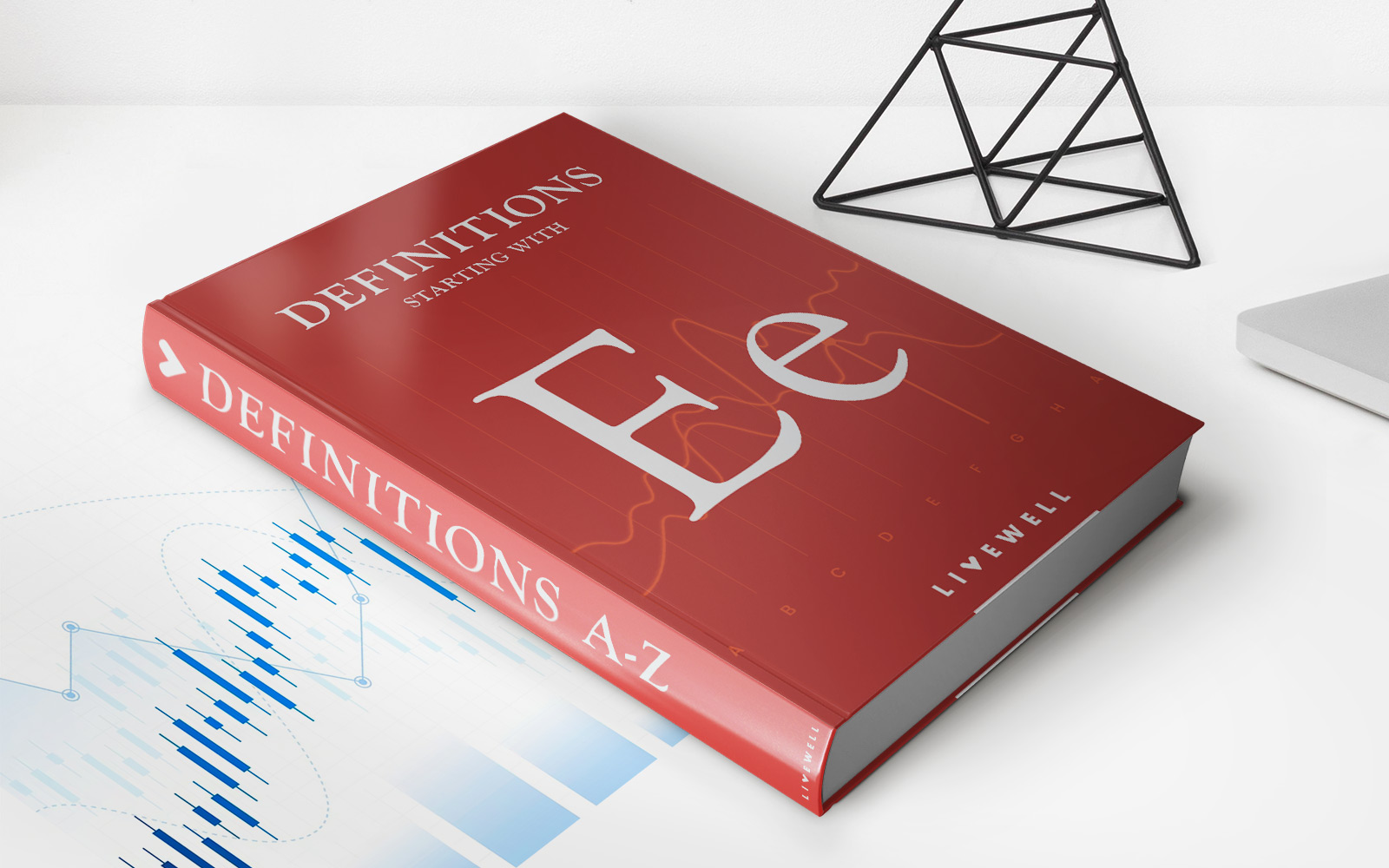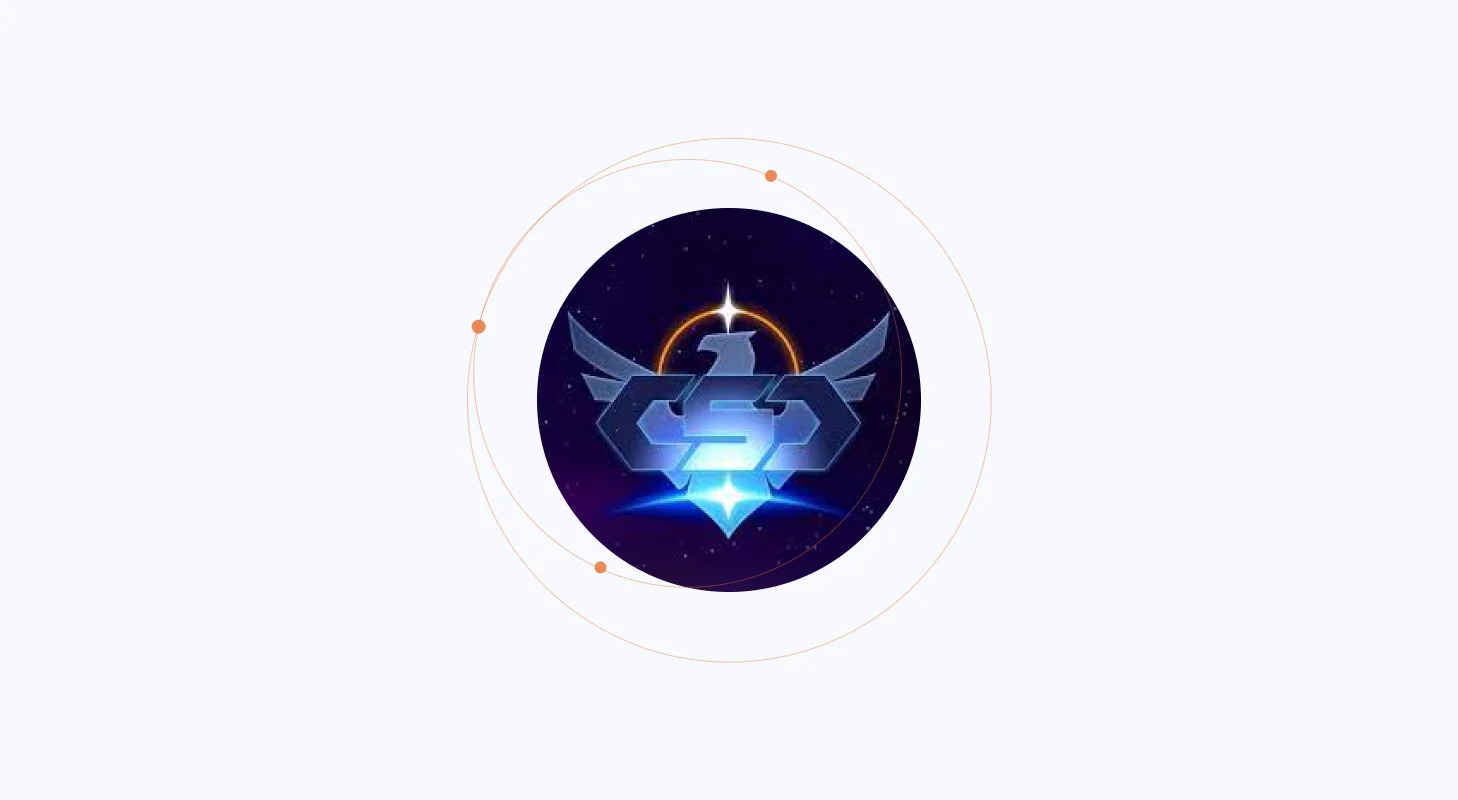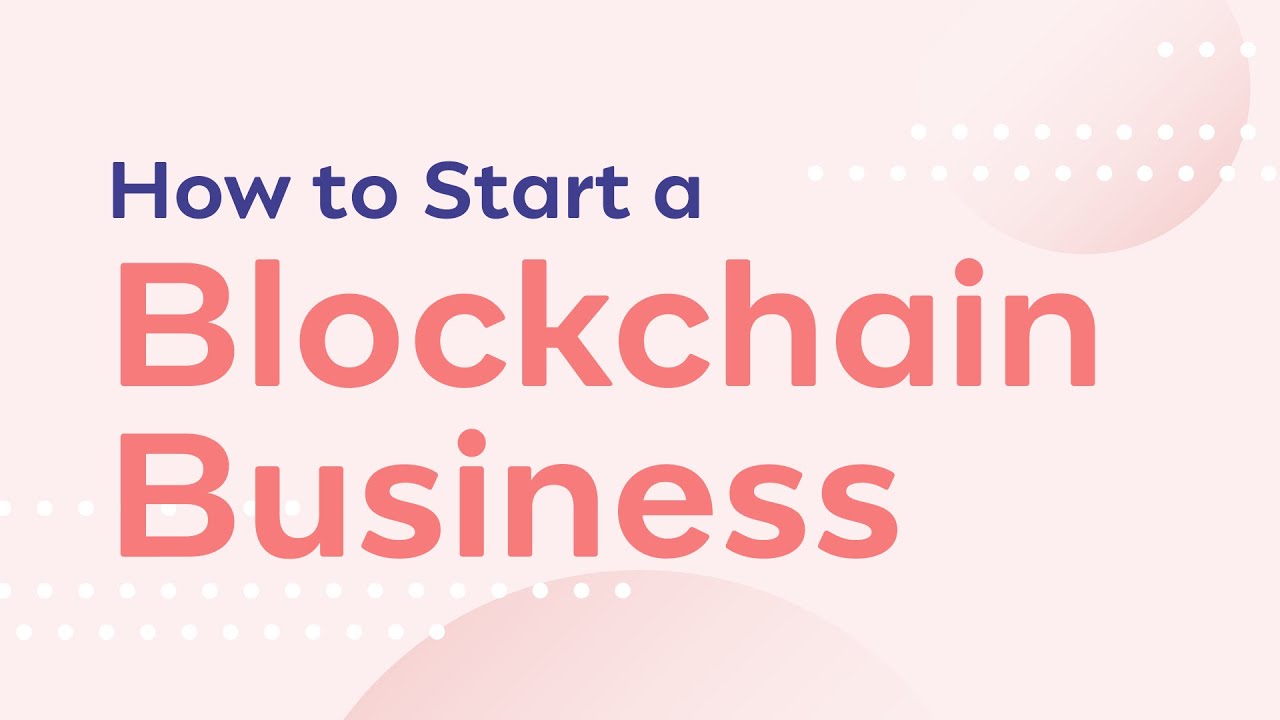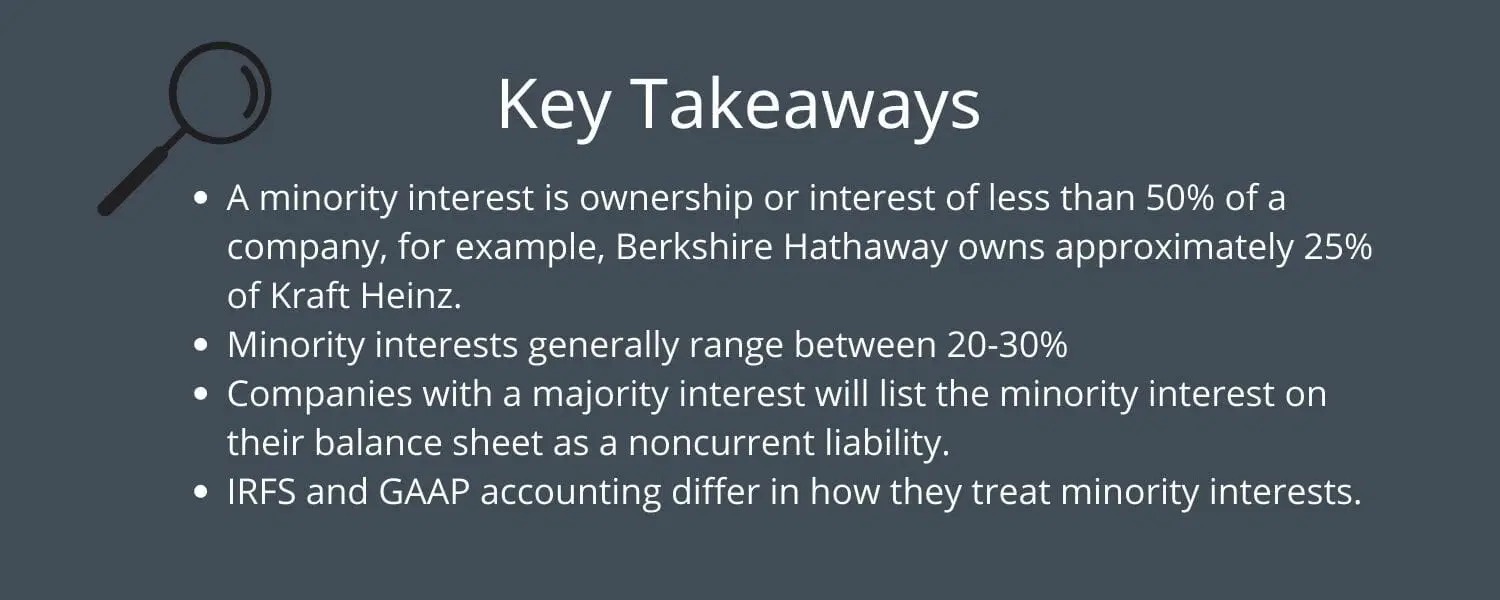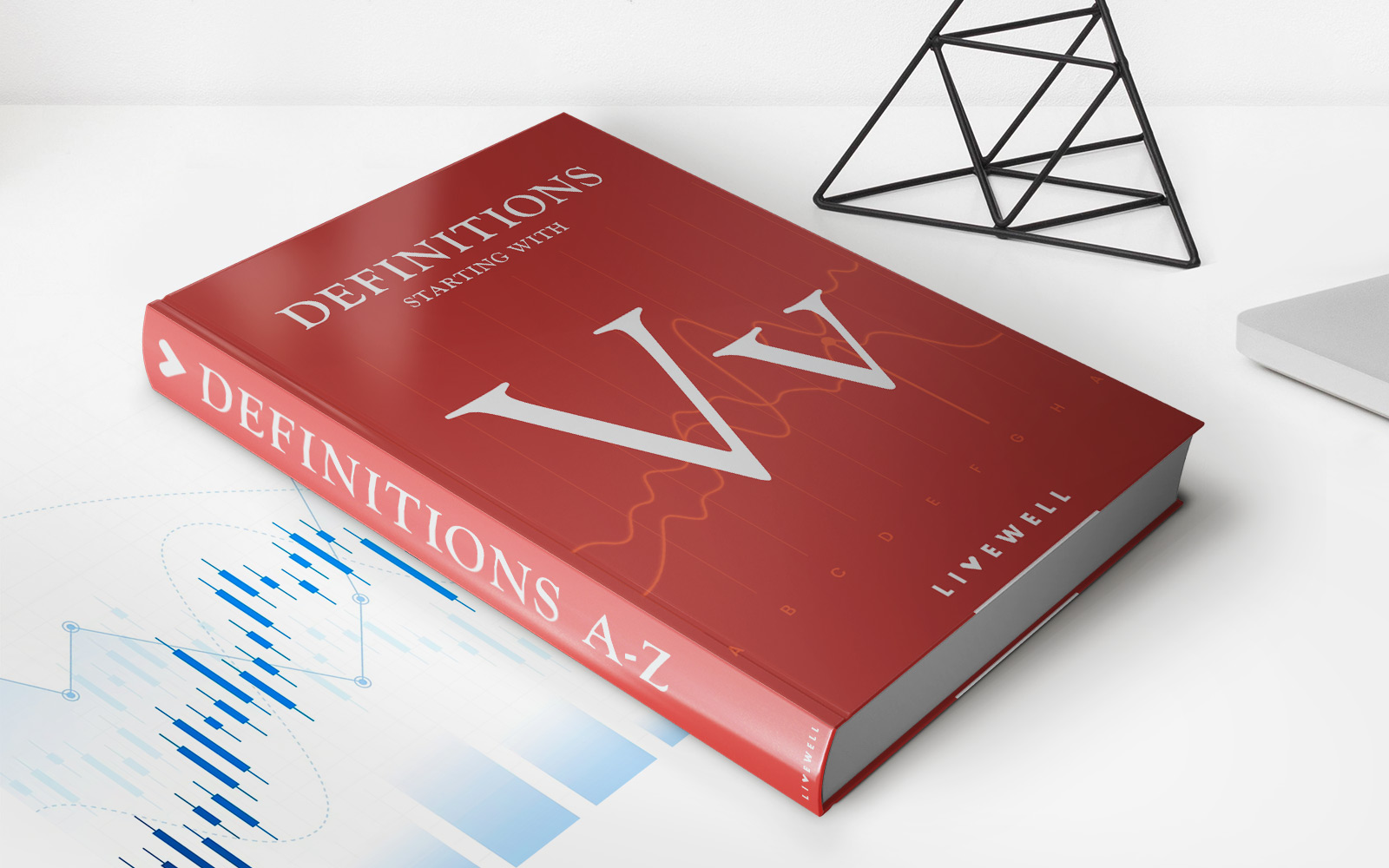

Finance
How To Start A Career In Blockchain Technology
Published: October 23, 2023
Looking to start a career in blockchain technology? Learn how blockchain intersects with finance and discover the steps to enter this exciting field.
(Many of the links in this article redirect to a specific reviewed product. Your purchase of these products through affiliate links helps to generate commission for LiveWell, at no extra cost. Learn more)
Table of Contents
- Introduction
- Understanding Blockchain Technology
- Skills Required for a Career in Blockchain Technology
- Education and Training in Blockchain Technology
- Career Paths in Blockchain Technology
- How to Get Started in Blockchain Technology
- Building a Professional Network in Blockchain Technology
- Job Opportunities in Blockchain Technology
- Challenges and Trends in Blockchain Technology
- Conclusion
Introduction
Blockchain technology has emerged as a revolutionary force in the finance industry, transforming traditional business processes and opening up new opportunities across various sectors. As the technology continues to gain traction, demand for skilled professionals in blockchain is on the rise.
In essence, a blockchain is a decentralized and immutable digital ledger that records transactions across multiple computers. It ensures transparency, security, and efficiency in various applications, such as financial transactions, supply chain management, healthcare, and more.
The potential of blockchain has caught the attention of both established companies and startups, leading to a growing need for individuals with expertise in the field. If you have an interest in finance and a passion for technology, starting a career in blockchain can be a smart move.
This article will guide you through the essential aspects of building a successful career in blockchain technology. We will explore the skills required, the educational pathways available, the different career paths within the industry, and tips on how to get started.
Whether you are a recent graduate, an experienced professional looking for a career switch, or simply curious about the possibilities that blockchain holds, this article will provide you with valuable insights and practical steps to embark on your journey in this exciting field.
It’s important to note that blockchain technology is still relatively new and rapidly evolving. As a result, the demand for blockchain professionals is outpacing the supply, creating numerous opportunities for those passionate about this innovative technology.
So, if you’re ready to join the ranks of the tech-savvy professionals shaping the future of finance, let’s dive into the world of blockchain technology and discover how you can start a successful career in this field.
Understanding Blockchain Technology
Before diving into a career in blockchain technology, it’s essential to have a solid understanding of the underlying principles and concepts. At its core, a blockchain is a distributed ledger that records transactions across multiple computers, making it highly secure and transparent.
Here are a few key features that make blockchain technology unique:
- Decentralization: Unlike traditional financial systems that rely on a central authority, blockchain operates on a decentralized network. This means that no single entity has control over the entire system, making it resistant to manipulation and fraud.
- Immutability: Once a transaction is recorded on the blockchain, it becomes virtually impossible to alter or delete. This immutability ensures the integrity of the data and enhances trust among participants.
- Transparency: Every transaction on the blockchain is visible to all participants in the network. This transparency fosters a high level of accountability and allows for a more efficient and auditable system.
- Security: Blockchain technology utilizes advanced cryptographic techniques to secure transactions and protect sensitive data. The use of encryption ensures that only authorized parties can access and verify the information.
- Smart Contracts: Smart contracts are self-executing contracts with predefined rules embedded in the blockchain. They automatically execute the terms of an agreement once specified conditions are met, eliminating the need for intermediaries.
Blockchain technology has the potential to transform various industries, including finance, supply chain, healthcare, and more. By leveraging its unique features, businesses can streamline processes, reduce costs, and enhance trust among stakeholders.
It’s important to note that blockchain is not solely limited to cryptocurrencies like Bitcoin. While cryptocurrencies were the first major application of blockchain technology, the potential use cases go well beyond digital currencies.
From decentralized finance (DeFi) platforms to supply chain management, voting systems, and even digital identity verification, blockchain can be applied to a wide array of industries and functions.
By understanding the fundamental concepts and features of blockchain technology, you will be better equipped to explore the different career opportunities within this field. Now that we have laid the foundation, let’s move on to the skills required to excel in a career in blockchain technology.
Skills Required for a Career in Blockchain Technology
To excel in a career in blockchain technology, there are several key skills and knowledge areas that you should develop. While the specific skill set may vary depending on the job role and industry, here are some essential abilities that can help you thrive in this field:
- Understanding of Blockchain Principles: A solid grasp of the underlying principles and concepts of blockchain technology is crucial. This includes knowledge of decentralized systems, consensus algorithms, cryptographic techniques, and smart contracts.
- Cryptocurrency Knowledge: Familiarity with cryptocurrencies, such as Bitcoin and Ethereum, is essential as they are the foundation for many blockchain applications. Understanding how cryptocurrencies work, their features, and the mechanisms behind them is valuable in navigating the blockchain landscape.
- Programming and Development: Proficiency in programming languages is highly beneficial for blockchain professionals. Solid knowledge of languages such as Solidity (for Ethereum), Python, JavaScript, and C++ can enable you to develop smart contracts, implement blockchain solutions, and contribute to blockchain projects.
- Security and Cryptography: Given the sensitive nature of data in blockchain systems, a strong understanding of security principles and cryptography is essential. Knowledge of encryption, hashing algorithms, and secure coding practices can help you design and develop secure blockchain solutions.
- Data Structures and Algorithms: Understanding data structures and algorithms is crucial for optimizing blockchain performance and scalability. It enables you to design efficient data storage and retrieval mechanisms, as well as develop algorithms for consensus protocols.
- Problem-solving and Analytical Thinking: Blockchain technology often requires solving complex problems and addressing challenges. The ability to think analytically, break down problems, and develop innovative solutions is highly valuable in this field.
- Business and Financial Acumen: Understanding the business and financial implications of blockchain technology is essential. This includes knowledge of how blockchain can disrupt traditional business models, its impact on different industries, and the potential value it can bring to organizations.
- Communication and Collaboration: Effective communication and collaboration skills are vital for blockchain professionals. As blockchain projects often involve cross-functional teams and interactions with stakeholders, the ability to communicate ideas, work collaboratively, and convey complex concepts to non-technical individuals is essential.
Developing these skills can significantly enhance your chances of success in a career in blockchain technology. Continuous learning and staying updated with the latest advancements in the field are also crucial to remain competitive in this rapidly evolving industry.
Now that you have an understanding of the skills required, the next step is to explore the educational and training opportunities available for aspiring blockchain professionals. Let’s delve into that in the next section.
Education and Training in Blockchain Technology
As blockchain technology continues to gain prominence, educational institutions and training providers are offering specialized programs to equip aspiring professionals with the necessary knowledge and skills. Here are some options for education and training in blockchain technology:
- University Degrees: Many universities now offer undergraduate and graduate programs in blockchain technology. These programs cover various aspects of blockchain, including the technical, business, and legal components. Pursuing a degree in blockchain can provide you with a comprehensive understanding of the technology and its applications.
- Online Courses and Certifications: There is an abundance of online platforms that offer courses and certifications in blockchain technology. These programs cater to individuals with different levels of expertise and can be more flexible and accessible than traditional educational institutions. Online courses often provide practical hands-on training and cover topics like smart contracts, cryptocurrency, blockchain development, and more.
- Blockchain Bootcamps: Blockchain bootcamps are intensive, immersive training programs that focus on equipping participants with in-demand skills in a short period. These bootcamps typically cover a wide range of blockchain topics, including development, cryptography, and blockchain implementation. They are designed to provide hands-on experience and practical knowledge to jumpstart your career in blockchain.
- Industry Certifications: Many organizations offer industry-recognized certifications in blockchain technology. These certifications validate your knowledge and skills in specific areas of blockchain, such as blockchain development, security, and architecture. Obtaining industry certifications can enhance your credibility and marketability in the job market.
- Blockchain Communities and Events: Engaging with blockchain communities and attending industry events can be a valuable source of learning and networking. Joining online forums, attending meetups, and participating in webinars can provide insights into real-world use cases, best practices, and the latest trends in blockchain technology.
It’s important to choose an educational or training path that aligns with your career goals and interests. Consider factors such as the program’s reputation, curriculum, faculty, and practical hands-on experience when making your decision.
Furthermore, don’t limit yourself to formal education alone. There are plenty of self-study resources, online tutorials, and open-source projects available for individuals who prefer a more self-directed learning approach. Taking the initiative to explore these resources and gaining practical experience can also contribute greatly to your knowledge and skill development.
Once you have acquired the necessary education and training in blockchain technology, you will be ready to explore the different career paths available in this field. We will delve into those paths in the next section, so keep reading!
Career Paths in Blockchain Technology
As blockchain technology continues to mature and expand, it presents a wide range of career paths for professionals with varying interests and skill sets. Here are some common career paths in the field of blockchain technology:
- Blockchain Developer: Blockchain developers are responsible for designing and implementing blockchain solutions. They develop smart contracts, create decentralized applications (DApps), and ensure the security and efficiency of blockchain networks. Proficiency in programming languages like Solidity, JavaScript, and Python is key for this role.
- Cryptocurrency Analyst: Cryptocurrency analysts study and analyze digital currencies and their markets. They monitor trends, assess investment opportunities, and provide insights and recommendations to investors. A strong understanding of cryptocurrencies, market analysis, and financial concepts is essential for this role.
- Blockchain Consultant: Blockchain consultants provide strategic guidance and advice to organizations looking to adopt blockchain technology. They assess business processes, identify areas where blockchain can add value, and help implement blockchain solutions. Strong problem-solving, communication, and project management skills are crucial for this role.
- Blockchain Architect: Blockchain architects design and develop the architecture of blockchain networks. They determine the structure, components, and protocols needed for secure and scalable blockchain solutions. A deep understanding of blockchain technology, security principles, and network design is required for this role.
- Blockchain Project Manager: Blockchain project managers oversee the planning, execution, and delivery of blockchain projects. They coordinate resources, manage timelines, and ensure that project objectives are met. Project management skills, along with a solid understanding of blockchain technology and its implementation, are vital for this role.
- Crypto Compliance Officer: Crypto compliance officers ensure that businesses comply with regulatory requirements related to cryptocurrencies and blockchain technology. They develop compliance policies, conduct audits, and monitor transactions for potential legal violations. Knowledge of regulatory frameworks, financial regulations, and blockchain technology is essential for this role.
- Blockchain Researcher: Blockchain researchers investigate and study emerging trends, technologies, and challenges in the blockchain ecosystem. They contribute to the development of new blockchain solutions, publish research papers, and provide insights that advance the field. Strong analytical, research, and problem-solving skills are necessary for this role.
- Blockchain UX/UI Designer: Blockchain UX/UI designers focus on creating user-friendly and visually appealing interfaces for blockchain applications. They design intuitive user experiences, develop wireframes, and collaborate with developers to ensure seamless integration of designs. Proficiency in UX/UI design principles, user research, and blockchain technology is important for this role.
These are just a few examples of the career paths available in blockchain technology. The field is constantly evolving, and new roles are emerging as the technology expands into different industries and sectors. As you gain experience and expertise, you may also have the opportunity to specialize in niche areas such as blockchain for healthcare, supply chain management, or legal applications.
It’s important to explore different career paths, assess your interests and strengths, and align them with the skills you have developed. Networking, attending industry events, and engaging with the blockchain community can also provide valuable insights into potential career opportunities.
Now that you have an idea of the career paths available, let’s delve into the next section and learn how to get started in the field of blockchain technology.
How to Get Started in Blockchain Technology
If you’re eager to start a career in blockchain technology, here are some steps you can take to get started:
- Gain a Solid Understanding: Begin by acquiring a solid understanding of blockchain technology and its underlying principles. Read books, take online courses, and explore educational resources to deepen your knowledge.
- Learn Programming Languages: Familiarize yourself with programming languages commonly used in blockchain development, such as Solidity, JavaScript, Python, and C++. Online tutorials, coding platforms, and practice projects can help you gain hands-on experience.
- Engage with Blockchain Communities: Join online communities, forums, and social media groups dedicated to blockchain technology. Engage in discussions, ask questions, and learn from experienced professionals in the field.
- Build Practical Projects: Practice your skills by working on small-scale blockchain projects. This could involve developing a smart contract, building a decentralized application, or contributing to open-source blockchain projects. Building a portfolio of practical projects will showcase your abilities to potential employers.
- Explore Internship Opportunities: Consider applying for internships or entry-level positions in companies or startups working on blockchain projects. This will give you valuable hands-on experience and help you establish connections within the industry.
- Attend Blockchain Events: Attend conferences, seminars, and meetups dedicated to blockchain technology. These events provide opportunities to learn from industry experts, network with professionals, and discover new trends and opportunities in the field.
- Continuously Learn and Stay Updated: Blockchain technology is evolving rapidly, so it’s essential to stay informed about the latest developments. Follow industry news, read whitepapers, and enroll in advanced courses or certifications to enhance your skills and knowledge.
- Network and Build Connections: Connect with professionals in the blockchain industry through LinkedIn, social media, or industry-specific websites. Attend networking events and reach out to individuals for informational interviews or mentorship opportunities.
- Start Your Own Blockchain Project: Consider starting your own blockchain project or initiative. This could involve building a decentralized application, exploring novel use cases, or contributing to the blockchain ecosystem in a unique way. Entrepreneurial endeavors in blockchain technology can showcase your initiative and creativity.
- Be Persistent and Adaptable: The field of blockchain technology is still evolving, and it may take time to secure the desired role or opportunity. Stay persistent, adapt to changes in the industry, and continue to develop your skills and expertise.
Remember, starting a career in blockchain technology requires continuous learning, practical experience, and a proactive approach. Embrace the learning journey, stay motivated, and leverage your skills to make meaningful contributions to the industry.
In the next section, we will explore the importance of building a professional network in blockchain technology and how it can benefit your career.
Building a Professional Network in Blockchain Technology
Building a strong professional network is essential for success in any field, and blockchain technology is no exception. Creating connections and fostering relationships within the blockchain community can open doors to collaboration, learning opportunities, and career advancement. Here are some strategies for building a professional network in blockchain technology:
- Attend Blockchain Events: Participate in conferences, meetups, and workshops focused on blockchain technology. These events provide a platform to meet industry experts, network with like-minded professionals, and stay updated on the latest trends and developments.
- Join Online Communities: Engage with online communities dedicated to blockchain technology. Participate in discussions, ask questions, and share insights. Platforms like Reddit, Telegram, and specialized blockchain forums can connect you with professionals from around the world.
- Utilize Social Media: Follow influential individuals, companies, and organizations in the blockchain industry on platforms like LinkedIn, Twitter, and Medium. Engage with their content, share your thoughts, and connect with professionals who share similar interests.
- Attend Hackathons and Competitions: Participate in blockchain hackathons and coding competitions. These events bring together developers, entrepreneurs, and enthusiasts who are passionate about blockchain. Collaborating with others in such environments can help you build connections and showcase your skills.
- Engage in Open-Source Projects: Contribute to open-source blockchain projects. This not only allows you to collaborate with others but also helps you establish a reputation within the blockchain community. It demonstrates your commitment to the technology and your ability to work in a team.
- Join Professional Associations and Organizations: Become a member of professional associations and organizations focused on blockchain technology. These groups often host networking events, webinars, and conferences exclusively for their members. They also provide access to resources and job boards specific to the blockchain industry.
- Participate in LinkedIn Groups: Join LinkedIn groups dedicated to blockchain technology. Engage in discussions, contribute valuable insights, and connect with professionals who share similar interests or expertise. Active participation in these groups can help you expand your network and gain visibility.
- Seek Mentorship: Reach out to experienced professionals in the blockchain industry and ask for mentorship. Mentors can provide valuable guidance, advice, and industry insights as you navigate your career in blockchain technology. Building a strong mentor-mentee relationship can lead to opportunities and valuable connections.
- Collaborate on Research or Projects: Seek opportunities to collaborate with researchers, developers, or entrepreneurs working on blockchain projects or research. Collaborative projects not only expand your knowledge and skills but also enable you to establish strong professional relationships for future endeavors.
- Be an Active Contributor: Share your knowledge, insights, and experiences with the blockchain community. Write articles, publish research papers, or create informative content on platforms like Medium, YouTube, or personal blogs. Contributing valuable content can attract like-minded professionals and establish you as a thought leader.
Remember, building a professional network is a continuous process. Actively seek opportunities to connect with others, contribute to the community, and support fellow professionals. Nurturing and maintaining your network will not only benefit your career but also enable you to contribute to the growth and development of the blockchain ecosystem.
In the next section, we will explore the job opportunities available in the field of blockchain technology.
Job Opportunities in Blockchain Technology
The growing adoption of blockchain technology has created a significant demand for professionals with expertise in this field. Here are some of the job opportunities available in blockchain technology:
- Blockchain Developer: As a blockchain developer, you will design, develop, and implement blockchain solutions. This includes writing smart contracts, creating decentralized applications (DApps), and ensuring the security and efficiency of blockchain networks.
- Cryptocurrency Analyst: Cryptocurrency analysts research and analyze digital currencies and their markets. They assess trends, evaluate investment opportunities, and provide insights and recommendations to investors and traders. It involves monitoring market performance, conducting fundamental and technical analysis, and staying updated on cryptocurrency news.
- Blockchain Consultant: Blockchain consultants provide strategic guidance and advice to businesses looking to adopt blockchain technology. They assess current processes, identify areas where blockchain can add value, and facilitate the implementation of blockchain solutions. Blockchain consultants need a deep understanding of both business and technology aspects.
- Blockchain Architect: As a blockchain architect, you will design and develop the architecture of blockchain networks. This involves determining the network structure, selecting the appropriate consensus mechanisms, and ensuring the scalability and security of the system. Strong technical skills and a deep understanding of blockchain technology are essential.
- Blockchain Project Manager: Blockchain project managers oversee the planning, execution, and delivery of blockchain projects. They coordinate resources, manage timelines, and ensure that project objectives are met. Strong project management skills, along with a solid understanding of blockchain technology and its implementation, are necessary for this role.
- Crypto Compliance Officer: Crypto compliance officers ensure that businesses adhere to regulatory requirements related to cryptocurrencies and blockchain technology. They develop compliance policies, conduct audits, and monitor transactions for potential legal violations. Knowledge of regulatory frameworks, financial regulations, and blockchain technology is essential for this role.
- Blockchain Researcher: Blockchain researchers investigate and study emerging trends, challenges, and advancements in the blockchain ecosystem. They contribute to the development of new blockchain solutions, publish research papers, and provide insights that advance the field. Strong analytical, research, and problem-solving skills are crucial for this role.
- Blockchain UX/UI Designer: Blockchain UX/UI designers focus on creating user-friendly and visually appealing interfaces for blockchain applications. They design intuitive user experiences, develop wireframes, and collaborate with developers to ensure seamless integration of designs. Proficiency in UX/UI design principles, user research, and blockchain technology is important for this role.
These are just a few examples of the job opportunities in blockchain technology. The industry is expanding rapidly, and new roles and opportunities continue to emerge. When exploring job opportunities, consider your interests, skills, and experience to find a role that aligns with your goals.
It’s worth noting that joining a startup or a company that focuses on blockchain technology can be an excellent way to gain experience and contribute to innovative projects. Additionally, freelancing or working on freelance platforms specialized in blockchain projects can also offer opportunities to showcase your skills and build a diverse portfolio.
As the blockchain industry evolves, more career paths are likely to arise. Keeping up with industry trends, continuously developing your skills, and staying well-connected within the blockchain community will help you identify and seize new job opportunities that align with your interests and goals.
In the next section, we will discuss some of the challenges and trends in the field of blockchain technology.
Challenges and Trends in Blockchain Technology
While blockchain technology has seen significant growth and adoption, it still faces several challenges and trends that shape its future. Understanding these challenges and staying updated on the emerging trends can provide valuable insights for professionals in the field. Let’s explore some of the key challenges and trends in blockchain technology:
Challenges:
- Scalability: One of the main challenges of blockchain technology is scalability. As the number of transactions increases, blockchain networks struggle to handle the volume, leading to slower confirmations and higher costs. Addressing scalability is crucial for widespread adoption in industries with high transactional requirements.
- Regulatory Environment: Blockchain technology operates across borders, and regulatory frameworks differ from one jurisdiction to another. This complex regulatory landscape poses challenges for compliance, privacy, and the integration of blockchain into existing legal frameworks. Balancing innovation with regulatory compliance is a key challenge for the industry.
- Interoperability: Blockchain networks often operate in silos, which limits their ability to communicate and share data with other blockchains or traditional systems. Achieving interoperability between different blockchain platforms is essential for seamless data exchange and the integration of blockchain into existing infrastructures.
- Security and Privacy: Although blockchain is known for its security, it is not impervious to attacks. New vulnerabilities and security risks continue to emerge as technology evolves. Additionally, maintaining user privacy while retaining the transparency benefits of blockchain is a challenge that requires careful design and implementation.
Trends:
- Enterprise Blockchain Adoption: There is a growing trend of businesses adopting blockchain technology for optimizing processes, enhancing transparency, and improving efficiency. Industries such as supply chain, finance, healthcare, and logistics are exploring the potential of blockchain to transform their operations and increase trust among stakeholders.
- DeFi and Decentralized Applications (DApps): The rise of decentralized finance (DeFi) platforms and DApps is a prominent trend in blockchain technology. These platforms enable the creation of financial instruments, lending, and borrowing services, and decentralized exchanges, offering more accessible and inclusive financial services.
- Blockchain Interoperability and Integration: Addressing the challenge of interoperability, there is a growing focus on developing solutions that allow different blockchain networks to communicate and share data. Interoperability protocols and frameworks are being developed to facilitate seamless integration across multiple blockchains.
- Blockchain and Internet of Things (IoT): The combination of blockchain technology and IoT devices opens up new possibilities for secure and decentralized data sharing and automation. Blockchain ensures data integrity and enables transparent interactions between IoT devices, paving the way for innovative applications in areas such as supply chain management, energy, and healthcare.
- Blockchain and Sustainability: With increasing concerns about environmental impact, blockchain technology is being explored for its potential in promoting sustainability. Blockchain-based solutions can enable transparent tracking of supply chains, verification of sustainable practices, and incentivizing eco-friendly behaviors.
These trends and challenges shape the future of blockchain technology. As a professional in the field, staying informed about these developments can help you anticipate opportunities, contribute to innovative projects, and navigate the evolving landscape of blockchain technology.
In the next section, we will conclude our discussion and summarize the key takeaways from this article.
Conclusion
Blockchain technology has emerged as a transformative force in various industries, offering secure and transparent solutions for diverse applications. As the demand for blockchain professionals continues to grow, starting a career in this field can be a smart move for those with a passion for finance and technology. In this article, we have explored the essential aspects of building a successful career in blockchain technology.
We began by understanding the fundamentals of blockchain technology, including its decentralized nature, immutability, transparency, and security features. We then delved into the key skills required for a career in this field, such as a solid understanding of blockchain principles, programming expertise, security knowledge, and analytical thinking.
Next, we discussed various education and training options available, including university degrees, online courses, blockchain bootcamps, and industry certifications. By continuously expanding your knowledge and staying updated with the latest advancements, you can stay ahead in the blockchain industry.
Furthermore, we explored the different career paths within blockchain technology, ranging from blockchain development and consultancy to cryptocurrency analysis and blockchain architecture. Each path offers unique opportunities for growth and specialization.
To kickstart your career in blockchain, we discussed practical steps such as attending blockchain events, joining online communities, engaging in open-source projects, and seeking mentorship. Building a strong professional network is crucial as it opens doors to collaboration, learning, and career advancement.
We also highlighted the job opportunities in blockchain technology, including blockchain developers, cryptocurrency analysts, blockchain consultants, and more. The industry is continually evolving, with new roles constantly emerging.
Furthermore, we explored the challenges and trends in blockchain technology. Challenges such as scalability, regulatory compliance, interoperability, and security require innovative solutions. Trends such as enterprise adoption, DeFi, and blockchain integration shape the future of the industry.
In conclusion, starting a career in blockchain technology offers exciting prospects in a field that is revolutionizing industries worldwide. By acquiring the necessary skills, staying informed about industry trends, and building a strong professional network, you can position yourself for success in this rapidly evolving field. Embrace the opportunities, continue learning, and contribute to the growth and development of blockchain technology.
